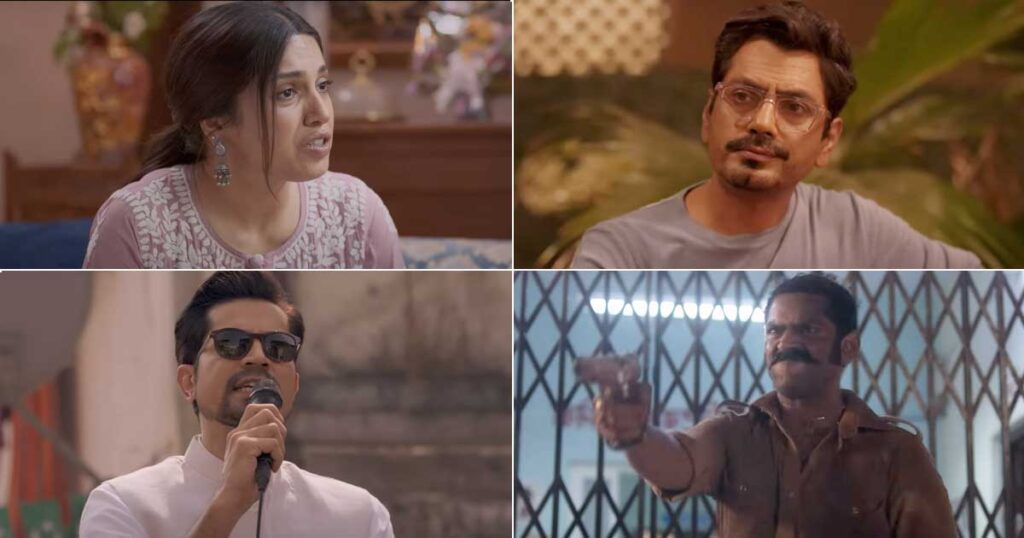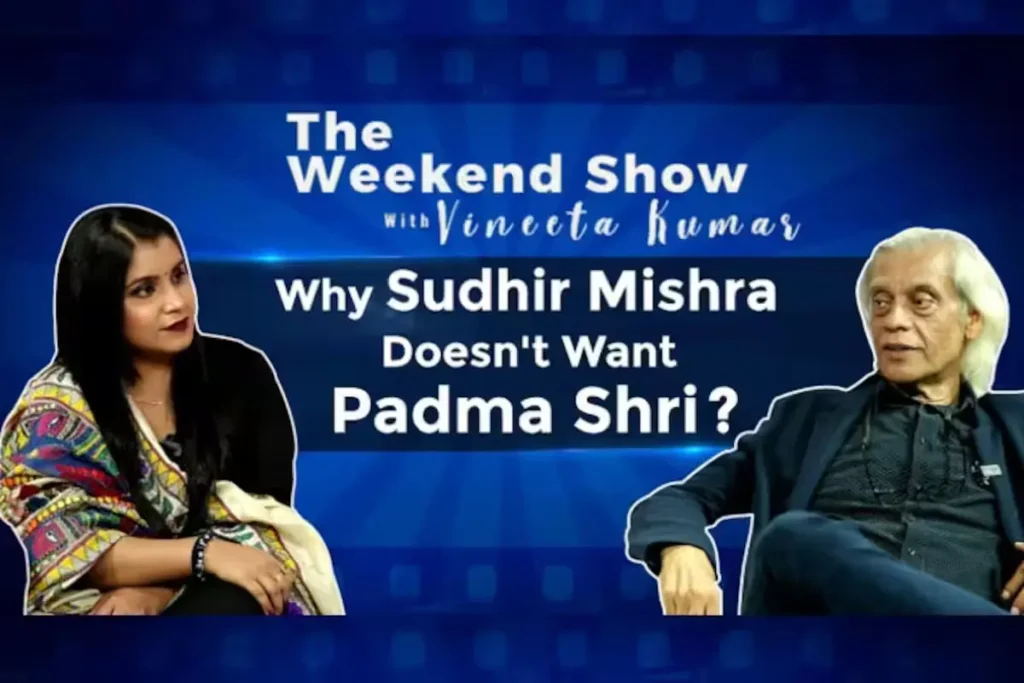
Plot: Social Media, Power, and Prejudice
Before writing a review of “Afwaah,” directed by Sudhir Mishra, let me share a glimpse of the plot.
“Afwaah” unfolds in Sawalpur, a small town in Rajasthan, embroiled in political unrest and social chaos.
As the story begins, we meet Vicky Bana aka Vikram Singh (Sumeet Vyas), a politically ambitious man whose provocative speech ignites a chain reaction of violence and revenge.
When his fiancée Nivi (Bhumi Pednekar) discovers his bigotry, she chooses to escape, only to find herself caught in the crossfire of escalating rumors and hate crimes, fueled by the social media platform, Qwitter.
As Nivi and Rahab Ahmed (Nawazuddin Siddiqui), a stranger who steps in to help her, strive to evade the dangers, they become victims of ‘love jihad’ hatred.
The film takes a deep dive into the consequences of unchecked rumors and the disturbing ease with which social media can manipulate public opinion.
Unsettling Exploration of Politics
“Afwaah” is a deeply political film that exposes the dynamics of power, the manipulation of public opinion, and the devastating role that social media can play in fueling societal divisions.
At its heart, “Afwaah” focuses on politics and fake news. It shows how a rumor, when magnified by politics and social media, can disrupt lives. This can lead to deeper societal divisions.
The story delves into the misuse of social media. Power-hungry individuals exploit this platform to take advantage of existing prejudices. This can create an atmosphere of fear and hatred.
The film reveals an uncomfortable truth. A single, unverified piece of information can be used for political gain. It highlights a bleak reality of our times. Personal biases can be manipulated and used for political purposes.
“Afwaah” also draws attention to bystanders’ role. They can unknowingly contribute to this vicious cycle. This happens when they don’t question the information they share or consume.
The film is a strong and timely critique of politics and social media’s dark side. It urges us to question the information we consume and share.
Subtle yet Powerful Performances

The acting performances are nothing short of exemplary.
Sumeet Vyas delivers a powerful portrayal of Vicky, encapsulating the many facets of his character, from his raw ambition to his volatile emotions.
Bhumi Pednekar excels as Nivi, a strong, determined woman who’s unwilling to compromise her values. Pednekar’s performance is compelling and emotive, matching stride for stride with Siddiqui’s restrained yet impactful presence as Rahab.
Sharib Hashmi also stands out, leaving a lasting impression in the limited screen time he gets.
Why You Should Watch This Movie?

“Afwaah” isn’t just a movie; it’s a social commentary on the state of our times. It pulls back the curtain on the dangerous manipulation of social media and reveals the damning consequences of rumors.
By presenting a story that is both compelling and relatable, “Afwaah” pushes us to question our own beliefs and biases.
It provokes us to examine our online behaviors and the information we choose to trust and propagate.
The film’s relevance in today’s digital age cannot be overstated. It’s an important reminder of the responsibility we all bear as participants in the digital world, where a single rumor can incite chaos, disrupt lives, and deepen societal divides.
Despite its gripping narrative and stellar performances, “Afwaah” isn’t without its flaws.
It’s not Flawless
Predictability: The film’s engaging and gripping storyline can’t hide the fact that viewers can easily predict some of its twists and turns early on, taking away the suspense this movie should ideally build.
Pacing: The first half of the film is quite fast-paced, which keeps viewers engaged. However, post-interval, the narrative seems to slow down, making some parts feel unnecessarily stretched out.
Language Usage: Moreover, while the dialogues in the Rajasthani dialect lend authenticity to the film’s setting, the excessive use of local slang might detract from the viewing experience for some.
Character Development: The film could have given some characters, especially the antagonist, a more nuanced portrayal to add depth to the narrative. As it stands, the antagonist’s motivations and actions often come off as one-dimensional.
Screenplay: There were moments where the screenplay could have been tighter, ensuring a more seamless progression of the storyline.
In conclusion, “Afwaah” is an important and timely film that explores the dark underbelly of social media and its potential to manipulate and divide.
Bolstered by compelling performances and a thought-provoking narrative, it’s a film that deserves to be seen, discussed, and pondered over. And perhaps, it might make us think twice before we click ‘share’ the next time.